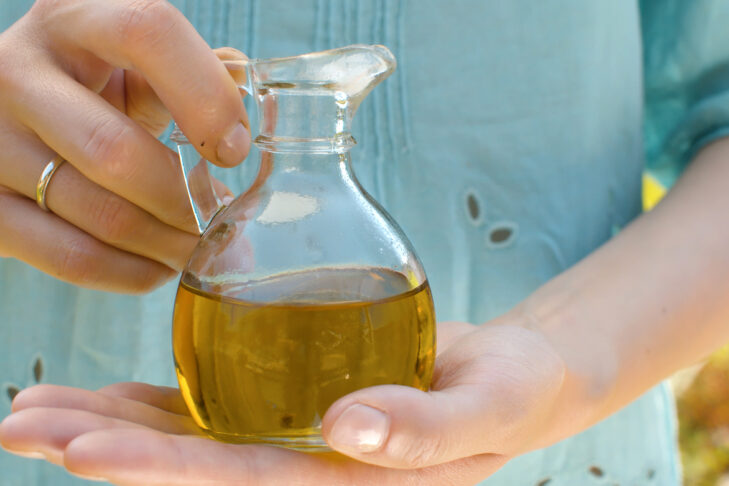When I was growing up in the ‘80s, the parts of the Hanukkah story that fascinated me most were the battle scenes between Judah Maccabee and King Antiochus. It sounded so cool that the Maccabees triumphed over a state-of-the-art army that had elephants. Maybe this resonated with a kid who liked playing with G.I. Joe action figures. As for the holiday’s central narrative—the scant supply of olive oil that miraculously kept the menorah lit for eight days in the Temple in Jerusalem—the younger me didn’t give it much thought.
Over the past year-and-a-half, however, the issue of a supply shortage has been very much on my mind. I started thinking about it in early 2020, with the onset of the COVID-19 pandemic in Greater Boston. The pandemic’s effects on the global supply chain soon became apparent at my local Star Market on the Cambridge-Somerville line. There were empty shelves in the aisles, and limits on certain goods per person posted at the checkout counter.
At the time, my girlfriend, Laura, had already started stockpiling bottled water, paper towels and—most unusually, I thought—masks. Masks? Why did we need masks? The disturbing headlines in the news soon explained why. The world shut down—businesses closed, college students went back home, traffic (mostly) disappeared and the next time I went to Star Market, I wore a mask.
We didn’t know when all this would end or when the supermarket shelves would get restocked. Suddenly, we had to think more about making things last, whether it was the masks and gloves we put on when going outside, the hand sanitizer we used when we came back in, or each time we put a new paper-towel roll beside the kitchen sink. This past summer—on June 1, 2021—Peter S. Goodman and Niraj Chokshi cited the pandemic as one of several reasons for the economic calamity summed up in the headline of their New York Times article: “How the World Ran Out of Everything.”
Although the tragedy of COVID-19 deaths continue to rise and the virus continues to spread, in some ways, the first months of the pandemic seem like a long time ago. Vaccines continue to be rolled out, and many businesses have reopened. Yet the “new normal” looks decidedly different from the pre-COVID era. People still need to wear masks indoors in many cities and on the T, and while restaurant patrons are back, many are choosing outdoor dining. Although the supermarket shelves look full again, there’s talk of new shortages.
That’s why the main story of Hanukkah sounds so eerily relevant in the COVID era. The Maccabees faced questions that we have had to address: What do you do when you have a finite amount of something that you need to make last, and how do you stay calm when you start to worry about supplies running out? We can also empathize with individuals living in poverty, who face shortages beyond those caused by COVID, and we can contribute to organizations like local food pantries that try to make a difference.
The Maccabees, so the story goes, had just one day’s supply of olive oil to light the menorah when they rededicated the Temple after their victory—the word “Hanukkah” means “dedication.” They sent out a messenger to get more oil. Meanwhile, the small amount of oil they had was enough to keep the menorah lit for eight days until he returned with a new supply.
Hanukkah reminds us that in a time of scarcity, we can make our supplies last a little bit longer while having reason for hope that soon they will be replenished. Even during a pandemic like COVID now in its second full year, these are messages of inspiration.
This post has been contributed by a third party. The opinions, facts and any media content are presented solely by the author, and JewishBoston assumes no responsibility for them. Want to add your voice to the conversation? Publish your own post here. MORE



